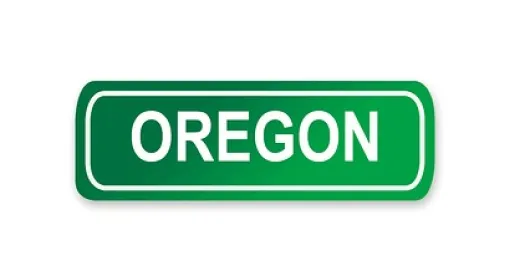On March 8, 2020, Oregon Governor Kate Brown declared a state of emergency due to the COVID-19 pandemic. Just 9 days later, on March 17, 2020, Governor Brown issued a series of executive orders that prohibited gatherings of 25 people or more; prohibited any restaurants, bars, or other similar establishments that offer food or drink from allowing on-premises consumption; and closed public schools statewide through at least April 28, 2020.
Governor Brown’s executive orders—Executive Order (EO) 20-08 (school closures) and EO 20-07 (prohibiting on-premises consumption at bars and restaurants, and limiting crowd sizes to no more than 25 people)—have had profound effects on workers across the state of Oregon. Beyond food and drink establishments, many employers in the hospitality, travel and retail industries have closed or laid off workers to reduce exposure. Indeed, unemployment claims in Oregon increased by nearly 3,200 percent on March 17, 2020, amid layoffs triggered by the impact of COVID-19.
In response to these widespread economic consequences, on March 17, 2020, Oregon’s Employment Department adopted a temporary rule (OAR 471-030-0070) to expand the availability of unemployment insurance benefits to workers impacted by COVID-19. The rule is intended to give workers the financial assistance they need when they are unable to report to work or make efforts to search for work due to business closures. The rule also enables workers to stay home to care for children whose schools have closed. This temporary rule applies retroactively to March 8, 2020, and remains effective through September 12, 2020.
Eligible Oregon workers normally may claim unemployment benefits only for each workweek in which they are physically and mentally able to work, available for work, and actively seeking work. Since current public health and government orders have forced businesses to close, and workers are advised to stay inside, an unemployed worker cannot “actively seek work” as a practical matter. Therefore, the temporary rule expands the availability of benefits to any employee who is discharged, quits, or fails to apply for work because of “COVID-19 related situations.”
“COVID-19 Related Situations”
“COVID-19 related situations” are situations in which persons are asked to work when doing so would require them to violate a mandatory quarantine or governor’s directive regarding the limitation of activities, or when they are unable to work because:
- they are ill with COVID-19;
- they have been subjected to mandatory quarantine due to potential exposure to COVID-19;
- they are in self-quarantine;
- their employers have ceased or curtailed operations due to COVID-19; or
- they have to stay home to care for family members, or people with whom they live or for whom they provide care, who are suffering from COVID-19.
Able to Work
A person will be deemed able to work under the temporary rule if that person is:
- quarantined, but is not sick;
- home sick because of COVID-19 or with similar flu-like symptoms and has not turned down an offer of work since staying at home due to the sickness; or
- hospitalized due to COVID-19, but for less than half of the week, and did not turn down an offer to work that week.
A person will be deemed unable to work if the person is offered suitable work and does not accept it due to sickness with COVID-19 or a condition with similar flu-like symptoms.
Actively Seeking Work
A person is considered to be “actively seeking work” if the person is unemployed because of a COVID-19 related situation, or if his or her work search efforts are significantly impacted by COVID-19, and either:
- the person or the employer intends on the person resuming work for the employer when COVID-19–related situations permit, and stays in contact with the employer, so the person can return to work when the employer permits; or
- the person or the employer does not intend for the worker to return to work, and the person is “doing what [he or she] can to find employment.”
Available for Work
A person will be deemed available for work if he or she is:
- staying at home, or quarantined, due to risk of exposure to, or spread of, COVID-19, “even if [his or her] employer had work [that the person] could otherwise have performed”;
- home solely due to lack of childcare for a child due to school or daycare closures or curtailments; or
- home to care for a family member due to the effects of COVID-19.
Key Takeaways
Employees who are temporarily laid off because their employers have stopped operating for a short period of time to undertake cleaning following a potential COVID-19 exposure or by government requirement, and who stay connected with their employers to return to work, may be eligible to receive unemployment insurance benefits. Employees who are not sick from COVID-19, or any conditions with flu-like symptoms, but must stay home to care for children due to school closures may also be eligible to receive unemployment insurance benefits.
Oregon employers may want to consider participating in the Employment Department’s Work Share program, which allows employers to retain and reduce the hours of key employees, instead of resorting to layoffs to reduce payroll. Public health recommendations regarding social distancing and any shelter-in-place orders, however, may make this option difficult for many employers.
While the Families First Coronavirus Response Act signed into law by President Trump on March 18, 2020, allocates $1 billion in federal emergency grants to state unemployment insurance programs, Oregon employers are unlikely to see an immediate, direct benefit. The Oregon legislature is expected to call a special session in the coming weeks solely to pass an emergency aid package to address the impact of COVID-19 on workers and businesses. Considerations will include eliminating barriers to unemployment insurance for laid off workers, suspending payroll taxes for small businesses, and providing tax credits and state grants to employers.




 />i
/>i
